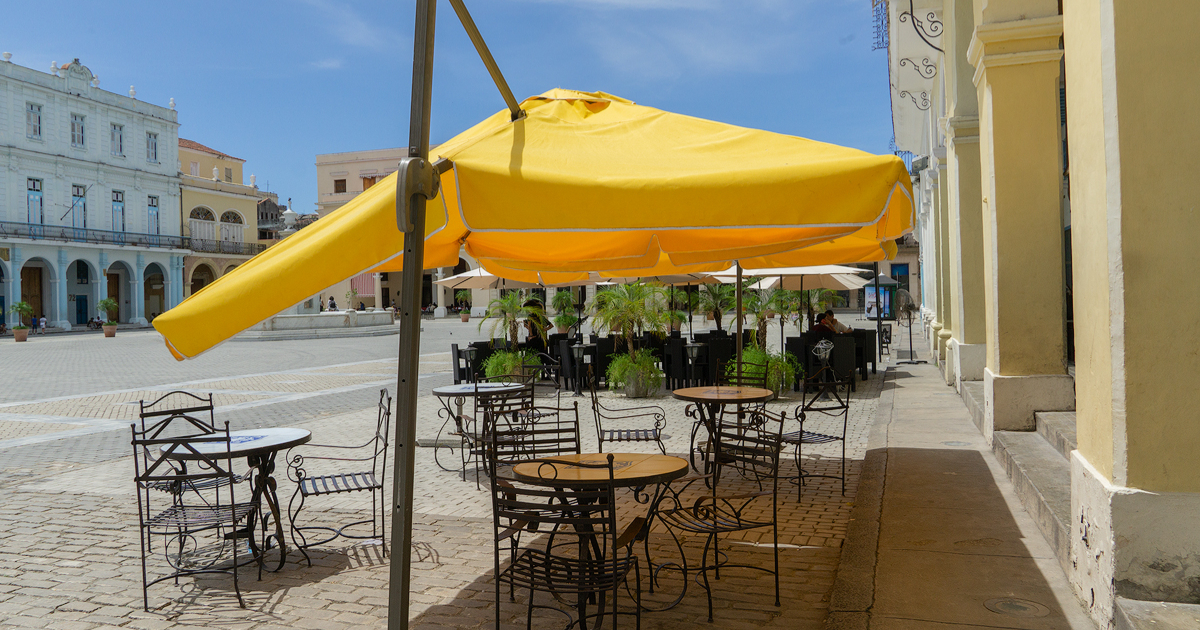
The historic district of Old Havana, an area where it was common to find foreign tourists sitting in parks or cafes, enjoying live music in restaurants or simply walking around, now shows a picture of sad loneliness.
The streets and squares where large groups of foreign visitors used to walk are completely empty, as CiberCuba was able to verify last Saturday morning, at a time when people usually fill the most emblematic places in the city.
Photos and testimonies attest to the impact of the international tourism crisis on the Cuban capital.
A woman who makes a living by braiding hair on Obispo and Mercaderes street, told this editorial team that in recent days there are almost no visitors, and the situation is worse during the week.
"I think I will have to sell the chair to be able to pay the taxes," confessed.
Everyone agrees that there are almost no tourists anymore, even though the government is trying to make it seem like the sector is taking off.
This week, Cuban economist Pedro Monreal detected false data regarding tourist arrivals to Cuba in the first semester of this year.
The regime revealed, through Cubadebate, that 1.8 million visitors arrived on the island from January to June, but according to Monreal, that is not possible, because "in order to accumulate 1.8 million visitors in January-June, 625,112 visitors would have had to arrive in June, but the maximum number of visitors received in a month of June in recent years was the one recorded in June 2018 (342,195)".
Cuba's Minister of Tourism congratulated himself on April 26th for having reached one million visitors in the first quarter and announced that the goal set for this year is to reach three million.
An impossible goal to achieve, despite being lower than the one proposed in 2023. That year, Cuba failed to reach the 3.5 million foreign tourists expected and stayed at 1.9 million (until October), far behind its neighbors in the region, such as the Dominican Republic, which received six million, and Cancun, which hosted four million.
On the other hand, Havana has felt the crisis more, as several airlines have cut back on their flights and are only flying to tourist destinations such as Varadero and the Keys.
One of the causes of this decrease is the poor quality of hotel services in the country, which has led to numerous complaints and even lawsuits in international courts.
In May, a Russian blogger recounted that she spent 16 days at the five-star Iberostar Laguna Azul hotel in Varadero, after which she decided she would not return to Cuba due to "the indifference of the locals and the lack of willingness to make an effort and do something".
In a five-star hotel, there was no water kettle in the room, and in the restaurant, instead of boiling water, they brought slightly warm water. Apparently, so that tourists do not get accidentally burned, because there are no burn remedies in pharmacies," he joked.
Unlike normal countries, where you first receive a service and then express thanks, in Cuba you first have to pay a few dollars and then hope to have a clean towel in your room. Or it may not appear," he stated.
The government has had to recognize the problems in the tourism sector, such as insufficient air connectivity, unpaid suppliers disrupting the supply chain, difficulties in accessing the international market, and a lack of personnel to work in the facilities.
What is your opinion?
COMMENTFiled under: